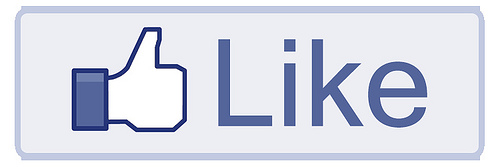A new kind of political donation is emerging in Canada. It’s called the Facebook like, and it’s changing the way politics and social change operate.
Over the last few years, Facebook has begun charging organizations to share their content on the news feeds of their followers and their followers’ friends.
The cost of airing a TV commercial is between two and five cents per estimated viewer. The cost of advertising on Facebook is about the same.
However, content can still be shared on Facebook the old fashioned way. When a friend likes your post, your post is more likely to show up in your friend’s feed, and the feeds of your friend’s friends.
This means that when you like a post from your favourite organization you aren’t just liking their post, you’re saving them the two cent cost of advertising to each of your friends.
A couple of cents here or there doesn’t sound like much, but it isn’t just a couple of cents here or there.
Leading organizations post every day in order to keep up their social media profile. If you log in every day just to like your favourite organization’s content, it’s a couple of cents times your hundreds of friends each day.
A typical Facebook user has around 200 friends. That means that at little cost to themselves, a typical Facebook user can save their favourite organization the equivalent of $120 a month in advertising.
What’s more, research has demonstrated that if you like something, your friends are more likely to like something. It doesn’t take long for likes to multiply throughout a network. When things go viral, the benefit to your favourite organization in terms of free advertising can be incalculable.
This opportunity for political and social organizations is emerging as Canadians start watching less television, long the anchor of political advertising.
In a recent study, “Clash of the Titans: Does Internet Use Reduce Television Viewing?” economists Stan Liebowitz and Alejandro Zentner report that the time people spend watching television is about 11 per cent lower today than it would have been had it not been for the event of the internet.
In fact, this decline in viewership is highly concentrated among the elusive young voter. Among viewers six to 34 years of age, were it not for the Internet, time spent watching television would be almost 20 per cent higher and experts think this is only going to get more pronounced.
We are only just beginning to understand how the rise of the Internet is going to change the public space in which social and political organizations operate. But it’s looking as if Facebook, and social media sites like it, will play a major role.
Facebook operates very differently than TV. What you see on TV is determined by how much money organizations that want to communicate with you can afford, and which one can pay the most. But on Facebook, what you see is determined, at least in part, by what you like to see and what your friends like to see.
Unlike TV, you can tell Facebook when you don’t want to see a particular ad, or even a general type of ad.
Men in their 20s and 30s are constantly targeted by advertisers hawking everything from purported muscle building products to online find-an-affair services, but we can also tell Facebook that we’re not interested, or even that we’re offended by them, so that we no longer have to see them.
It’s hard to imagine Facebook will ever be foolish enough to charge money for all sharing over Facebook. Providing personalized content is central to their business model. People are on Facebook for the individualized content — content that they curate, at least in part, for themselves and their friends.
At the end of the day, of course, advertising is only one piece of the politics and social change puzzle. Talk needs to lead to action. But changing the world without talk is also impossible.
Not long ago, if you couldn’t raise a few million dollars or get major media to devote significant coverage to your issue, it was intractably difficult to reach large groups of people with any kind of message. That isn’t the case anymore.
So next time you choose to “like” something on Facebook, think about it for a second. For better or for worse, you’re altering the public sphere you and your friends inhabit. Your “like” might be the difference between your friends only being bombarded by groups that can afford it, or being exposed to a non-profit organization really trying to make the world a better place.
A Facebook “like” is a minor act, but it’s still a political act, and one that is only going to grow in importance — whether we like it or not.
Chuk Plante is the Policy Director and Aaron Genest the Technical Director at the new Canadian think tank Upstream: Institute for a Healthy Society. They are well aware that their Facebook friend networks are likely to overlap and that their $120/month donation estimate above is going to be affected by this. They would also really appreciate it if you could take the time to log into Facebook right now and like their organization’s page.
Image: flickr/Sean MacEntee




